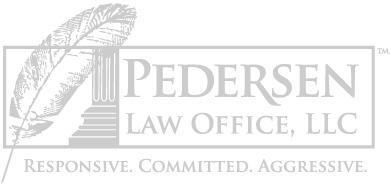Settling a Trust After Death
Aug 26, 2022

If you have been named a successor trustee by a loved one who passed away, you probably have a lot of questions about what you need to do. The average person has little experience settling a revocable trust. The good news is the estate should avoid the probate process, but there is still work to be done to settle the trust. Let’s discuss the general process for settling a revocable trust.
Get Organized
First thing you will want to do is gather all the important documents and get organized. You will need the original estate planning documents including the revocable trust and any amendments. You will need the death certificate, most likely obtained by the funeral home. You will also need all financial information including assets, income sources and debt obligations.
Notifications
You should contact the attorney who drafted the trust or another estate planning attorney to help you through the administering process. They will advise you on the necessary notifications. You are required by law to give notification to all beneficiaries, letting them know you are in control of the trust. You will need to give notice to any creditors as well. You will also need to notify various government agencies and income sources that end upon death such as the Social Security Administration, Veteran Affairs, Medicare/Medicaid, and pension plans. A Tax ID Number will need to be obtained from the IRS as well.
Inventory of Assets
You will want to make sure all assets are in fact owed by the trust. If any assets are outside the trust, those assets may need to go through the probate process. All trust assets need to be accounted for, valued, and secured. The trust’s Financial Advisor should be able to assist in this process. A trust bank account should be opened if there is not one already established. A good accounting of all income and expenses needs to be kept and provided to the attorney and beneficiaries.
Pay Debts & Taxes
All legitimate debts and ongoing expenses of the estate will need to be paid using available trust funds. A final income tax return will need to be filed on behalf of your loved one. Also, if the trust continues to earn income throughout the settlement process, income tax returns will need to be filed for the estate. An estate accountant will be able to assist you with filing all necessary income tax returns. You will want to ensure all debts and taxes are paid prior to distributing assets to avoid becoming personally liable.
Distribute Assets
If a probate case was required due to assets not being owned by the trust, the probate case needs to be completed prior to any distributions to beneficiaries. Once all expenses of the trust and estate are settled, you may distribute the assets according to the terms of the trust. Depending on the assets and terms of the trust, you may be required to sell or transfer property. Some trusts distribute all assets outright, while other trusts have assets that remain in the trust for many years. As the successor trustee, it is important that you honor your loved ones wishes set forth in the trust.
FREE CONSULT
At first, being named as a successor trustee can be overwhelming but having an experienced trust attorney guide and assist you along the way will make all the difference. At Pedersen Law Office, LLC we offer free consultations to discuss the details of the trust, what needs to be done and answer any questions you may have. Our law office serves the communities of Appleton, Neenah, Menasha, Oshkosh, Green Bay and their surrounding areas.


